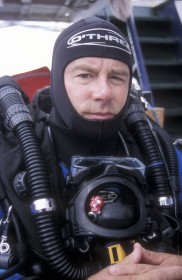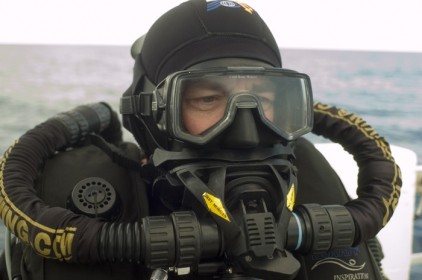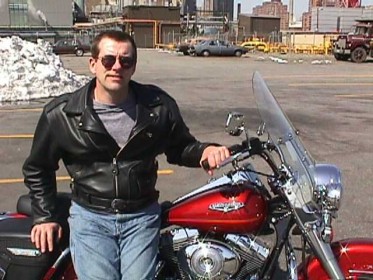
Wreck Diving & U-869
Questions for Wreck Diving
On October 10, 2008 Mr. John Chatterton was interviewed by QuestionsForLiving®.
QFL Interview Question: What are the 3 - 5 primary questions which you routinely ask yourself to maximize the success of your wreck diving expeditions?
Chatterton: In order to maximize the chances of success on any particular diving expedition, I routinely ask myself the following:
- Have I done all of my homework? The only thing that can bring me any sort of confidence is the knowledge that I have done all of the preparation I can. Without confidence, I personally can't seem to have vision, focus, or ultimately success.
- Have I explored everything that can possibly go wrong, and are we fully prepared for every emergency? The bottom line is that every piece of equipment will eventually fail, and every plan is fallible only because of the human element. Failures should be expected, and in themselves they should not be fatal. The real issue is the problem that has not been foreseen. If you have not prepared for an unforeseen problem, you don't have a solution immediately available, you know it, and the natural reaction is to panic.
- Is everyone on the team, on the same page? The advantages of working as a team are tremendous, but communication is essential. Lack of communication negates all the advantages of working with the team.
- What have I forgotten? As planning and execution become more complex, there is a greater likelihood that something will be left behind. There is no worse situation than to need something offshore, and say, "I have one of those at home."
* * *
QFL Interview Question: What were the 3 - 5 primary questions which you routinely asked yourself in discovering the identity of U-869?
Chatterton: Our work trying to identify the U-869 lasted six years and was incredibly frustrating. We always felt the answer was right in front of us, we just had to identify it for what it was.
- Specifically, what are we looking for? Swimming around the wreck, or roaming through the archives without very specific direction was worthless. Both the wreck, and the archives were simply too large. What we always needed was something to focus on.
- Are we trying hard enough, or maybe too hard? This question stemmed from the frustration of working so long on a project without success. There were a few small successes, but they seemed too few, and too far apart.
- Could we push a little more, and would that make the difference? On the other hand, trying too hard could easily become fatal.
- Is there some tool, or technology that we can use to give us an advantage? Clearly we understood the advantages of using technology to give us a better vision of what we were working on, increased bottom time to work on the site, and ways to better manage the inherent risk.
- Where have I not been, and how can I get a different perspective? It always seemed that the answer was going to be found some place where we had not yet been, as opposed to right in front of us. This was true for both the diving and the historical research.



Mr. John Chatterton can be contacted at:
John Chatterton
Bio
John is one of the world's most accomplished and well-known wreck divers. He was co-host for 57 episodes of the History Channel's successful diving series, Deep Sea Detectives. He is also a consultant to the film and television industries and has worked with 20th Century Fox, Paramount Pictures, and CBS. The 1991 discovery and subsequent identification of the German submarine U-869 off the coast of New Jersey has been the subject of several television documentaries, including a two-hour special for the popular NOVA series on PBS. This same story is the subject of Robert Kurson's New York Times bestselling book, Shadow Divers. Recently, John again teamed up with diving partner Richie Kohler for a project 12,500 below the surface of the Atlantic, on the legendary wreck of Titanic. This new adventure has been chronicled in Brad Matsen's new bestselling book, Titanic's Last Secrets.
Homepage
http://www.johnchatterton.com


